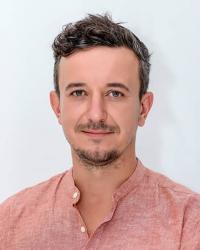Michael Stasik is an anthropologist working on the intersection of urban cultures, economies and mobilities in West Africa. He is a postdoctoral researcher at the Max Planck Institute for the Study of Religious and Ethnic Diversity. He obtained his MPhil from the African Studies Centre Leiden and his PhD from the University of Bayreuth, where he also worked as lecturer in anthropology. He was co-editor of Temporalities of Waiting in Africa (Critical African Studies, 2021), Bus Stations in Africa (Africa Today, 2018) and The Making of the African Road (Brill, 2017), and serves as co-editor-in-chief for the journal New Diversities.
During his MIASA fellowship, he wants to consolidate findings from his current research project. This project explores practices of transnational migration in West Africa by considering the trajectories of individual/non-associational migrants in urban Ghana. The main interest here is to understand dynamics of the diversification and individualization of migration in the sub-region. Related research questions concern the significance of social detachment and loneliness/aloneness in constituting migrant experiences and aspirations.
You are currently viewing a placeholder content from X. To access the actual content, click the button below. Please note that doing so will share data with third-party providers.
More Information



